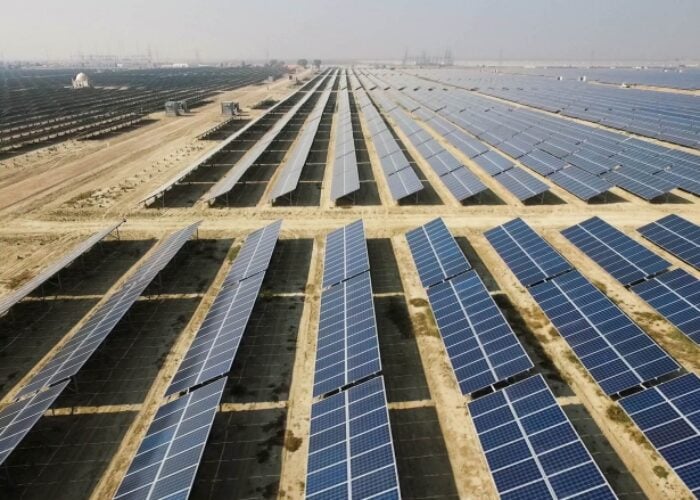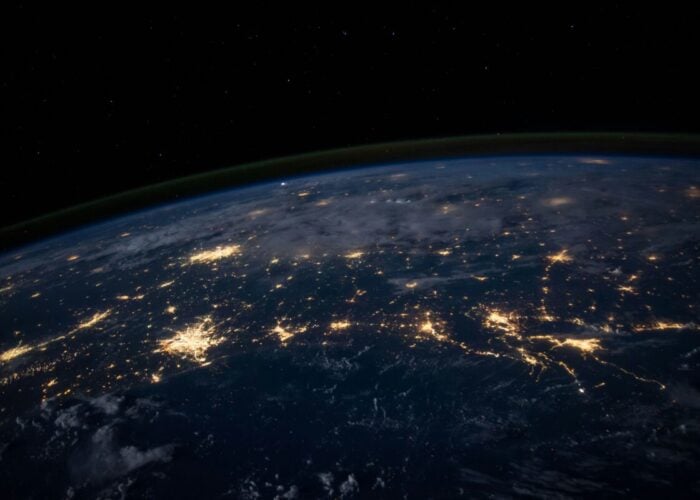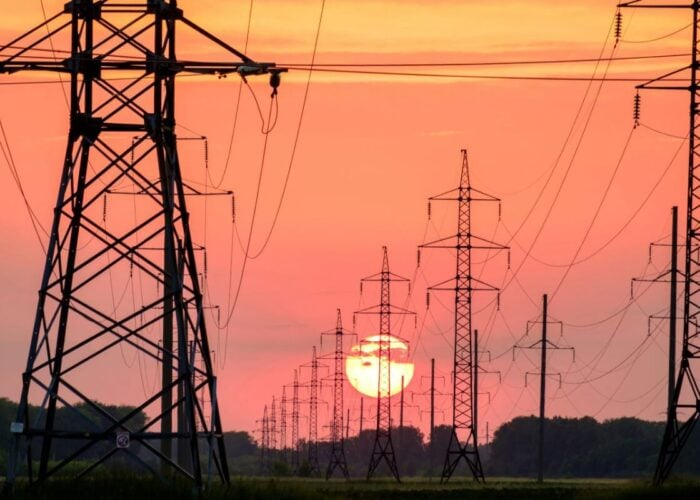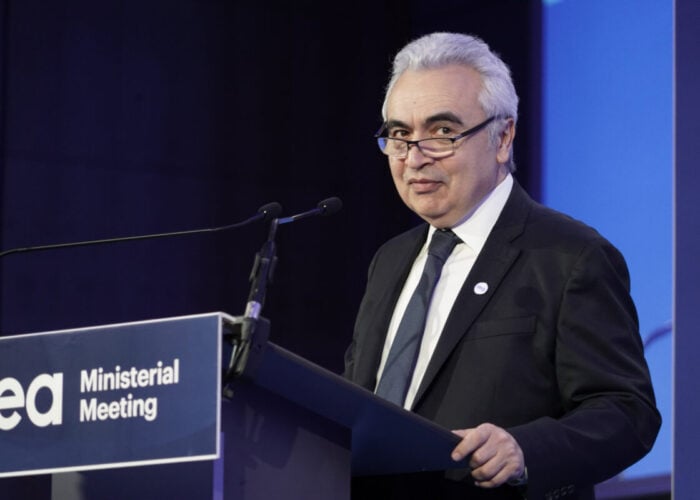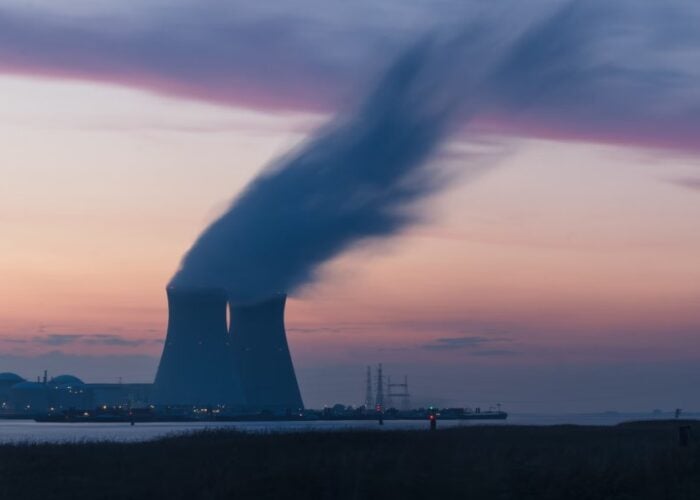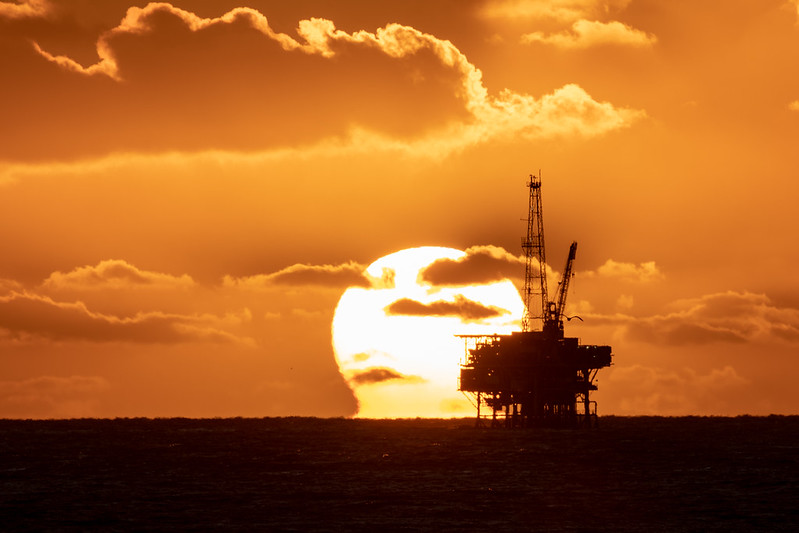
The crash of oil prices as the global coronavirus crisis intensifies may challenge the plans by oil and gas (O&G) giants to finance a shift to renewables, the International Energy Agency (IEA) has said.
This week, IEA executive director Dr Fatih Birol said the green energy pledges of O&G players will be “tested” after geopolitical rifts – including Saudi Arabia’s move to ramp up oil output – saw Brent crude prices crash to US$31.14 on Monday, as COVID-19 cases swelled worldwide.
Unlock unlimited access for 12 whole months of distinctive global analysis
Photovoltaics International is now included.
- Regular insight and analysis of the industry’s biggest developments
- In-depth interviews with the industry’s leading figures
- Unlimited digital access to the PV Tech Power journal catalogue
- Unlimited digital access to the Photovoltaics International journal catalogue
- Access to more than 1,000 technical papers
- Discounts on Solar Media’s portfolio of events, in-person and virtual
Or continue reading this article for free
The events convinced the IEA to “sharply downgrade” its forecasts for 2020 oil demand, amid talk of a sector “severely” hit by virus-driven transport restrictions. As market conditions worsen, Dr Birol argued, observers “will be quick” to notice if a firm's emphasis on the clean energy transition “dies down”.
The warning emerges after weeks where, pressured by the climate crisis, top O&G players have put forward plans to dramatically invest in renewables. For solar, the arrival looks set to bring heaps of capital but also hard-to-outbid rivals, particularly in Spain and other popular PV markets.
The recent raft of O&G net-zero pledges began with Repsol – who announced last year a 1.6GW new push of PV and wind – and continued with Galp, who snapped up a 2.9GW solar pipeline. In recent weeks, they were joined by fellow green-pledging oil majors BP, Eni and Equinor.
These firms’ ability to spend on all areas – renewables included – may be hindered if COVID-19 continues to depress oil revenues, according to separate analysis from Wood Mackenzie published this week. If sub-US$40 oil prices persist, O&G players will have to respond with “brutal cost-cutting”, the consultancy warned.
Virus-driven delays risk putting brakes on solar momentum
The escalation of the coronavirus crisis has not left the solar industry untouched. The epidemic – which at the time of writing had passed 110,000 cases and 4,000 fatalities worldwide – has had ramifications for PV players in at least China, India, South Korea, Taiwan and the Philippines.
Delays with PV components shipped from major supplier China, where the virus outbreak originated, may yet slow down PV deployments elsewhere. The industry has ballooned in recent years, fueling a historic drop in power emissions, but needs more funding to keep the momentum.
As pointed out by earlier IEA updates, support may come from the O&G sector's very “deep pockets”. Without the industry's help, technologies including solar, wind and storage “may simply not achieve the scale needed … to move the dial on emissions,” the agency said in January.
The wave of O&G green energy plans seen since late 2019 evidence a will, at least on paper, to invest heavily. Where Galp has committed an initial €2.2 billion (US$2.42 billion) and Eni an initial €2.6 billion (US$2.89 billion), Equinor has pledged NOK 50 billion (US$5.7 billion).
Judging by IEA’s assessment, however, funding pledges to date may fall short of the mark. There are “few signs” so far that the O&G sector is investing enough to “put the world on a more sustainable path”, the agency said in its January update, aimed at wealthy Davos forum attendees.
The balancing act O&G players face as they invest in the energy transition was recently illustrated by Engie. Founded as a gas giant, the firm has remained money-making as it ramped up green energy allocations but faced criticisms over the sale “on the cheap” of fossil fuel assets, stoking a controversy that ended with its CEO being ousted.

